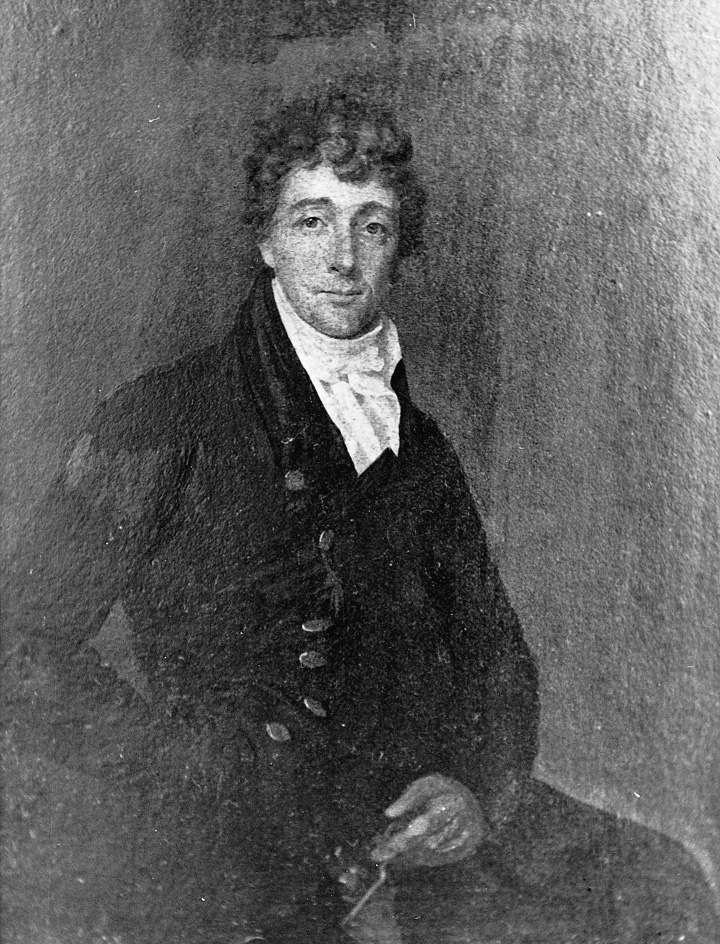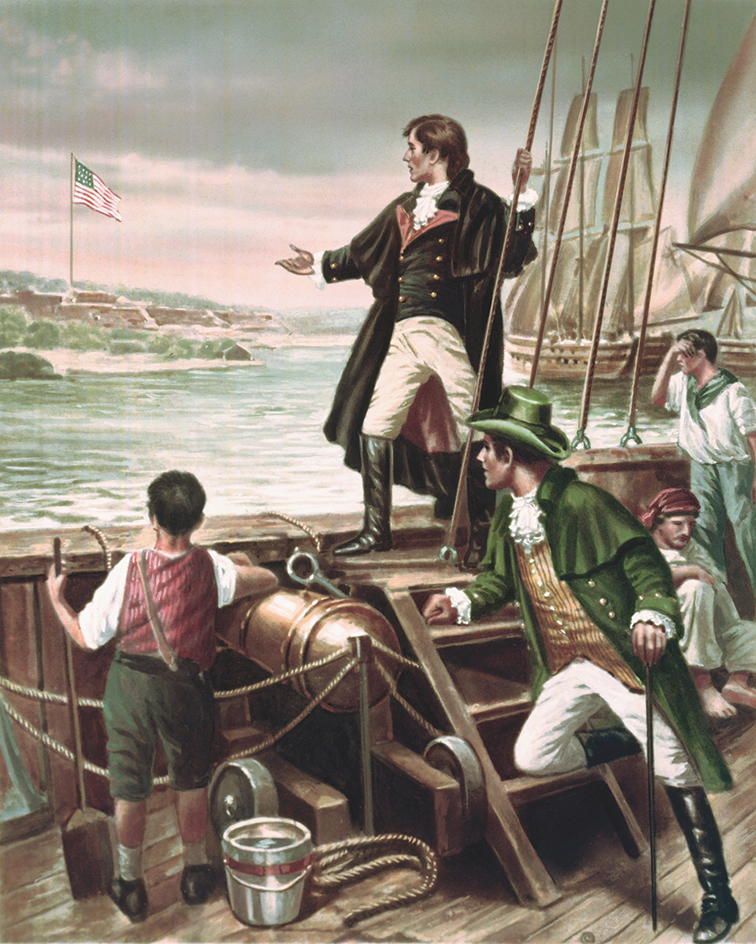Key, Francis Scott (1779-1843), was a well-known Washington lawyer and amateur verse writer. He became famous for writing the words of “The Star-Spangled Banner,” the national anthem of the United States. He wrote the poem during the War of 1812 .

When the British retreated from Washington during the war, they took Key’s friend William Beanes with them. President James Madison gave Key permission to intercede with the British for Beanes’s release. Key and John S. Skinner, a government agent, boarded a U.S. flag of truce ship in September 1814. They contacted the British fleet and arranged for Beanes’s release. From the flag of truce ship, Key witnessed the British fleet’s bombardment of Fort McHenry in Baltimore Harbor beginning on September 13. At dawn the next day, he saw that “our flag was still there” despite the ordeal. His joy inspired him to write a poem about it. To set it to music, Key borrowed the tune from a popular English drinking song, “To Anacreon in Heaven.” Congress adopted his song, “The Star-Spangled Banner,” as the national anthem of the United States in 1931.

Key was born on Aug. 1, 1779, in Frederick County, Maryland, in an area that is now part of Carroll County. In 1801, Key began to practice law in Frederick. The next year, he moved to Georgetown, near Washington, D.C.
Loading the player...United States national anthem
Key’s law career included both private practice and public service positions. He was district attorney of the District of Columbia from 1833 to 1841. Also in 1833, President Andrew Jackson sent Key to settle a land dispute with the indigenous (native) Creek people in Alabama. Key helped found the American Colonization Society, a group that tried to end slavery by sending black people back to Africa. Key died on Jan. 11, 1843.
Key wrote enough verse to fill a collection, Poems of the Late Francis S. Key, Esq. (1857). Much of his poetry was religious, and included the hymn, “Lord, with Glowing Heart I’d Praise Thee.”
